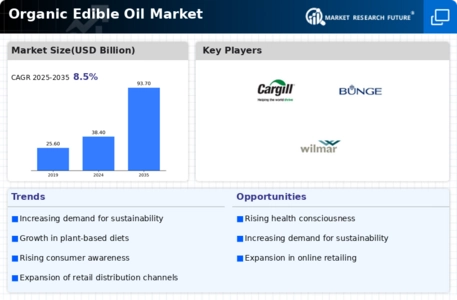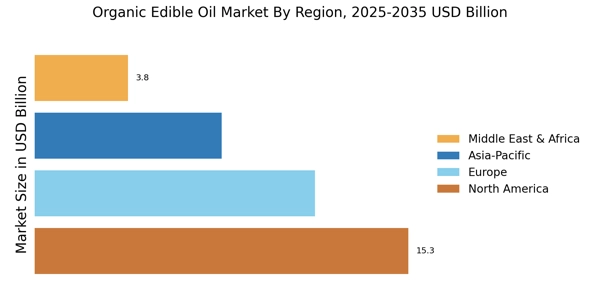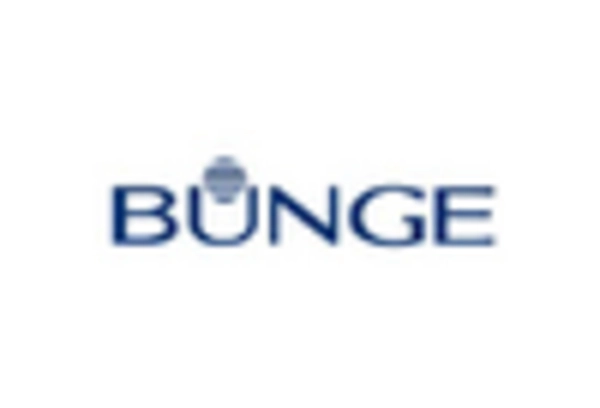Rising Demand for Organic Products
The Organic Edible Oil Market experiences a notable increase in demand for organic products, driven by consumers' growing awareness of health and wellness. As individuals become more conscious of the ingredients in their food, the preference for organic oils, which are perceived as healthier alternatives, intensifies. According to recent data, the organic food sector has seen a compound annual growth rate of approximately 10%, indicating a robust trend towards organic consumption. This shift is not merely a passing fad; it reflects a fundamental change in consumer behavior, where the emphasis on natural and chemical-free products is paramount. Consequently, the Organic Edible Oil Market is poised to benefit from this rising demand, as consumers actively seek oils that align with their health-conscious lifestyles.
Regulatory Support for Organic Farming
The Organic Edible Oil Market benefits from favorable regulatory frameworks that promote organic farming practices. Governments in various regions are implementing policies that support organic agriculture, including subsidies and certification programs. These initiatives not only encourage farmers to transition to organic methods but also enhance consumer trust in organic products. For instance, regulations that mandate clear labeling of organic oils help consumers make informed choices, thereby boosting market growth. The presence of such supportive regulations is crucial for the Organic Edible Oil Market, as they create a conducive environment for organic producers and facilitate the expansion of organic oil offerings in the marketplace.
Increased Awareness of Environmental Impact
The Organic Edible Oil Market is significantly influenced by the heightened awareness of environmental sustainability among consumers. As the adverse effects of conventional farming practices become more apparent, consumers are increasingly opting for organic oils that are produced through environmentally friendly methods. This trend is supported by data indicating that organic farming can reduce pollution and conserve water, making it a more sustainable choice. Furthermore, the organic sector is often associated with biodiversity preservation, which resonates with environmentally conscious consumers. As a result, the Organic Edible Oil Market is likely to see a surge in demand as consumers prioritize products that contribute to ecological balance and sustainability.
Technological Advancements in Oil Extraction
Technological innovations in oil extraction processes are transforming the Organic Edible Oil Market. Advances in extraction techniques, such as cold pressing and supercritical fluid extraction, enhance the quality and yield of organic oils. These methods not only preserve the nutritional value of the oils but also align with consumer preferences for minimally processed products. As technology continues to evolve, it is expected that the efficiency and sustainability of oil extraction will improve, further driving the growth of the Organic Edible Oil Market. The integration of technology in production processes may also lead to cost reductions, making organic oils more accessible to a broader consumer base.
Growing Culinary Trends Favoring Organic Oils
The Organic Edible Oil Market is experiencing a surge in popularity due to evolving culinary trends that favor organic oils. Chefs and home cooks alike are increasingly incorporating organic oils into their recipes, driven by the perception that these oils enhance flavor and provide health benefits. The rise of cooking shows and social media platforms has further amplified this trend, as influencers showcase the use of organic oils in various dishes. Market data suggests that the culinary sector's embrace of organic ingredients is contributing to a significant increase in sales within the Organic Edible Oil Market. This trend indicates a shift in consumer preferences towards high-quality, organic options that align with contemporary cooking practices.


















